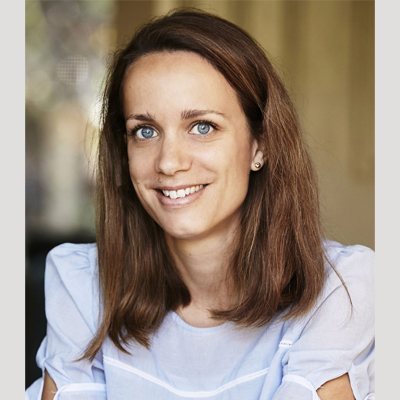Sophie Stocker
Senior Scientific Officer, Department of Clinical Pharmacology & Toxicology, St Vincent’s Hospital
Conjoint Senior Lecturer, St Vincent’s Clinical School, University of NSW, Sydney, AU
Sophie Stocker shares about her research aimed at answering clinically relevant questions, often posed in the course of work by hospital staff. Look out for two oral presentations of Sophie’s contributed work at the congress, ‘A time and motion study of phlebotomists’ work’ and ‘Vancomycin: Improving prescribing practices’, as well as a presentation in the Symposium ‘Emerging TDM technologies and obstacles to widespread use’ on Wednesday (see preliminary program).
Can you tell us a little bit about your respective roles? What is a typical day like for you?
I am a senior hospital scientist at a public hospital, St Vincent’s Hospital, Sydney and I am also affiliated with the University of New South Wales, Sydney, Australia. My role to support the two institutions is integrated with a focus on providing the evidence base to ensure the quality use of medicines. I design and conduct clinical studies and interpret data obtained from them in order to answer clinically relevant questions (commonly posed by hospital staff) to improve patient care and health outcomes. My research spans across all therapeutic areas and includes both quantitative and qualitative (interviews/surveys) methods. My work has an emphasis on the successful implementation of, and/or regulatory (policy) changes to translate research findings into routine clinical care. Both undergraduate and post-graduate students from medical, science and pharmacy disciplines conduct this research under my supervision. A key focus of my hospital role is as a member of the therapeutic drug monitoring (TDM) advisory service which provides dose recommendations and clinical support to prescribers and other hospital staff to ensure the most appropriate doses and use of medicines.
A typical day involves meeting with researchers to discuss their projects and career development, delivering drug dosing advice, and educating hospital staff on the quality use of medicines.
Is there anything that your laboratory does, or that is done at your hospital or centre, that you would consider innovative?
Yes, we are a multi-disciplinary department including clinical pharmacologists, pharmacists, toxicologists, basic scientists, pathologists and human factors researchers. We run a TDM service based on clinical need, developing new assays, using pharmacometric/dose prediction software and continually evaluating and improving the service whilst educating/feeding back to hospital staff.
What technological innovations have entered into use during your career that have permitted a change, or evolution, in practice?
Improvement of IT which enable integration of dose prediction software even at the point of prescribing. Quantitative pharmacology techniques which enable simultaneous detection of multiple compounds in a more efficient manner (using robotics for example).
How did you become interested in your area of expertise?
During my undergraduate studies I saw how poorly we prescribe medicines which have the potential to treat/cure diseases which cause significant burden to patients. My PhD, post-doctoral studies and career to date have focused on identifying factors which contribute to the variability in response to a medicine between (and within) individuals and incorporating this knowledge into clinical practice to improve patient care.
Is there anything that you’ve seen or heard about recently and thought “I’d like to incorporate that idea at my center”?
Some hospitals have integrated dose decision support systems at the point of prescribing (even for the first dose) to improve the outcomes from critical drug therapy. These support systems include patient characteristics, drug concentrations and genetic information. I hope that our hospital will be able to use such an approach soon.
What sort of research do you have on the horizon that you think might influence clinical practice in the future?
Identifying the factors which affect the success and sustainability of an interpretive TDM service across institutions. We are interested in including pharmacogenomic information as part of the routine TDM service.
What do you consider is the future for TDM and CT? What are you excited about? What are the challenges we face?
I think that the future of TDM will be dependent on IT technologies and their integration into electronic health records. Together with advanced sampling strategies (dry blood spot etc.) and access to mobile devices patients may monitor their own drug therapy. In the mean time, we need to harness IT improvements with new quantitative pharmacology techniques to streamline TDM and establish the evidence base for new medicines. Establishing a successful and sustainable TDM service is a challenge!
The content of the IATDMCT Blog does not necessarily have the endorsement of the Association.



